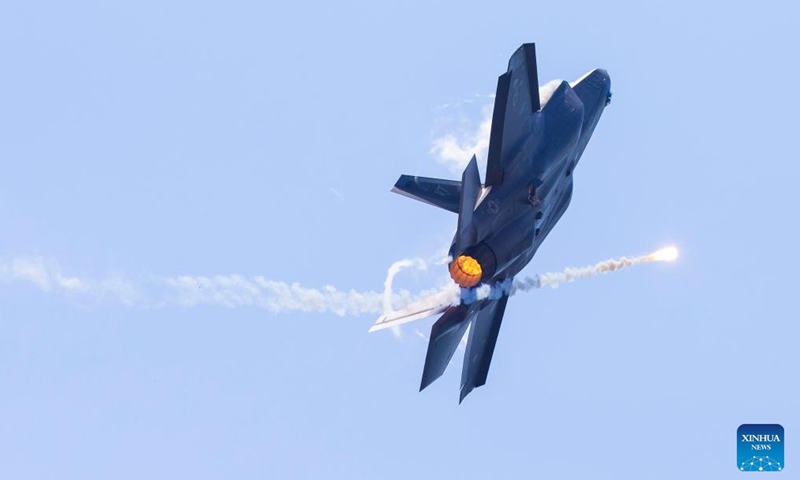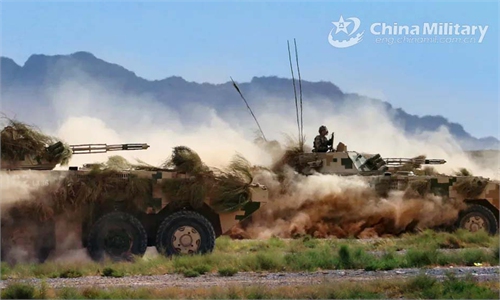US halting of F-35 deliveries ‘over Sinophobia’ puts itself at greater risk: experts

A F-35 Lightning II performs during the 2022 Canadian International Air Show in Toronto, Canada, on Sept. 3, 2022.Photo:Xinhua
The US Department of Defense's move to halt deliveries of F-35 stealth jets after a Chinese rare-earth component was "discovered" in the aircraft underscores the growing Sinophobia within the US that increasingly puts itself at a greater risk, as it still relies heavily on China for crucial rare-earth and other components, Chinese analysts said on Thursday.
Despite worries over Chinese components, the US is facing serious troubles in finding alternative supply chains for advanced weapons and equipment that are completely independent from Chinese supplies, analysts noted. Even if the US will be able to find a replacement, they may incur cost, quality and quantity problems, and if the US opt for a waiver to continue to use the Chinese components, it still faces risks of potential supply restrictions given the tensions, they said.
An investigation in mid-August found that an alloy in the lubricant pump of the F-35's engine "did not comply with [US] procurement laws that bar unauthorized Chinese content," Reuters reported on Thursday, citing Pentagon spokesperson Russell Goemaere.
The magnet does not transmit information or harm the aircraft, and that there are no risks involved, Goemaere said.
According to Lockheed Martin, the manufacturer of the F-35, the issue is related to a magnet on the F-35 Turbomachine manufactured by Honeywell that includes a cobalt and samarium alloy, Reuters reported.
Citing a statement by the F-35's Joint Program Office, the report said that an alternative source for the alloy will be used in the future. It also mentioned that there are other magnets of Chinese-origin on the jet, which have received waivers from past Pentagon officials.
The incident reflects the Sinophobia of the US, which is now facing challenges replacing top quality and cost-effective Chinese rare-earth products for some of its most important weapons and equipment, vital to the US' and its allies' militaries, without China banning the export, observers said.
Even if the US might be able to find a short-term replacement, it will likely suffer from a cost hike, Wei Dongxu, a Beijing-based military expert, told the Global Times on Thursday.
China has a full industry line in prospection, excavation and production of rare earths and enjoys economy of scale, so it will be very difficult to replace all Chinese rare-earth products in all of US hi-tech equipment for the time being, he added.
The F-35 is an important combat aircraft of the US Air Force, Navy and Marine Corps as well as US allies, with the US military acquiring up to 152 each year and on track to have 1,115 delivered in 2023, US news outlet Defense News reported in April.
If the US cannot find a replacement with the same quality, at a comparable price and in large quantity in time, the latest incident could impact the delivery of the aircraft, hitting combat capabilities of the US' and its allies' militaries, analysts said.
If the US opt for a waiver, which arms firms could lobby related officials into due to profit reasons, the US should now also worry about a potential export control from China, Wei said.
Rare earths are strategic resources and require proper controls to decide how and to whom they can be exported in the national interests of China, experts said.
F-35s are deployed in the Asia-Pacific region including in bases in Japan and South Korea and on US aircraft carriers and amphibious assault ships, posing a threat to China, observers pointed out.




